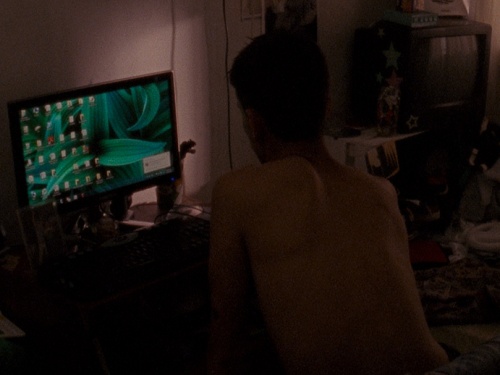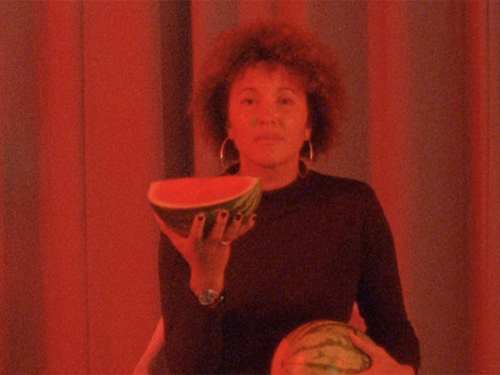Safar: Terrorism and The Kebab
In the 1993 film, Terrorism and the Kebab (Al-irhab wal-kabab), building and architecture are more than just backdrops. They loom like another character actor in what is considered the most popular Egyptian film of all time.
The highly versatile actor Adel Imam – regarded as Egypt's Bill Murray – plays Ahmed, an Egyptian everyman, normal in all respects. To make ends meet he holds down two jobs, by day at the Cairo water authority; by night as a manager of a respectable café. He is married with two children who he wants to transfer to a school closer to home. But to do this he has to undergo a bureaucratic nightmare that awaits him in El-Mogamaa, a monolithic government building on the edge of pre-revolution Tahrir Square.
As the political sociologist Saad Eddin Ibrahim told Kim Murphy of the LA Times, El-Mogamaa is “a symbol of 4,000 years of bureaucracy, and for the average Egyptian, it means all that is negative about bureaucracy: routine, slow paperwork, complicated paperwork, a lot of signatures, impersonality. It is a Kafka building.”
Once inside, our unassuming hero joins what seems to be a queue of thousands of frustrated Egyptians caught in a never-ending cycle of trudging round and around El-Mogamaa’s grand spiral staircase. Of course the official Ahmed needs to see is on vacation. During a second visit, he learns from the man who shines the shoes of the great and the good in El-Mogamaa that the particular official he requires is of a delicate constitution and avails himself of the more refined facilities in the surrounding buildings. This revelation provides Ahmed (and the rest of us) with an excuse to embark on a tour of the surrounding built environment – from the Ministry of Foreign Affairs to the grand hotels frequented by foreigners. Once back in the office in El-Mogamaa where this official should be, Ahmed becomes involved in a fracas and in the ensuing struggle accidently ends up with one of the guards’ automatic weapons. By the time the Minister of Interior, played by Kamal al-Shennawy (1921–2011), is called in, the incident has officially become a full-blown terrorist attack.
However it is Ahmed’s pragmatism and generosity that impresses his unruly government hostages who eventually realise that they are as frustrated and unfulfilled as he is. Along with a prostitute and the shoeshine man, they play an unexpected hand in this comedy of errors. That is, not before a pivotal scene takes place early in the film when an increasingly vexed Ahmed scolds a bearded civil servant who is found on a prayer mat every time he comes to the office – “If you spent more time helping people and less time praying, God would give you a greater reward.”
Terrorism and the Kebab would have remained a film about fighting government bureaucracy if not for two private prosecutions for insulting Islam taken out against Imam, now in his seventies. A salafist lawyer from Alexandria used for the basis of both lawsuits Article 98(f) of the Egyptian penal code, which demands punishment for “whoever exploits religion in words or writing or any other methods to promote extremist ideologies, with a view of stirring up sedition, disparaging or contempt of any divine religion or its adherents, or prejudicing national unity and social peace.”
These court cases too, like El-Mogamaa, have a Kafkaesque feel to them. In the first case, the actor and other movie professionals were found not guilty. However in the second one, Imam was sentenced to three months in prison. In July, that sentence changed into a fine of $170 (£120). On 12 September 2012, he won an appeal and the judge presiding over the case said he had watched the films, including Terrorism and the Kebab, and found that the actor had not insulted Islam. Nor is Imam’s case an isolated incident. Potential court cases facing actors have galvanised Egypt’s cinema industry, and the actors’ syndicate has offered to pay legal costs for actors under threat.
Egypt, like many other Muslim countries, stands at a crossroads of religion, society and culture. Are people there willing to give up artistic expression and erase a rich cultural past because of a vocal and extremist religious minority? As Egyptian megastar Hussein Fahmy, from Watch Out for ZouZou (1971), told an audience during the panel ‘Arab Cinema – In Practice’ at ICA’s Friday Forum: “We have no other choice but to fight.”
Terrorism and the Kebab gives insight into the conditions that gave rise to both radical terrorism and the Arab Spring, as writer and broadcaster Ziauddin Sardar pointedly revealed in the New Statesman. “The film suggests that almost everyone in Egypt – army, government, bureaucracy, judiciary, rich, poor – is involved in an elaborate game whose function is to stop change at all costs. Or, as Ahmed puts it, ‘nothing is allowed to happen’. At the end, a reporter asks what the terrorist looks like. ‘Like any one of us,’ is the reply.”
Malu Halasa is the Writer in Residence for Safar: A Journey though Popular Arab Cinema, a season of classic and contemporary Arab cinema at the ICA from 21 – 27 September 2012. She will be introducing tonight's UK cinema debut screening of Terrorism and The Kebab at 6:30pm.
This article is posted in: Articles, Blog, Film
Tagged with: Film, Film Festival, Guest blogger, Safar, writing





